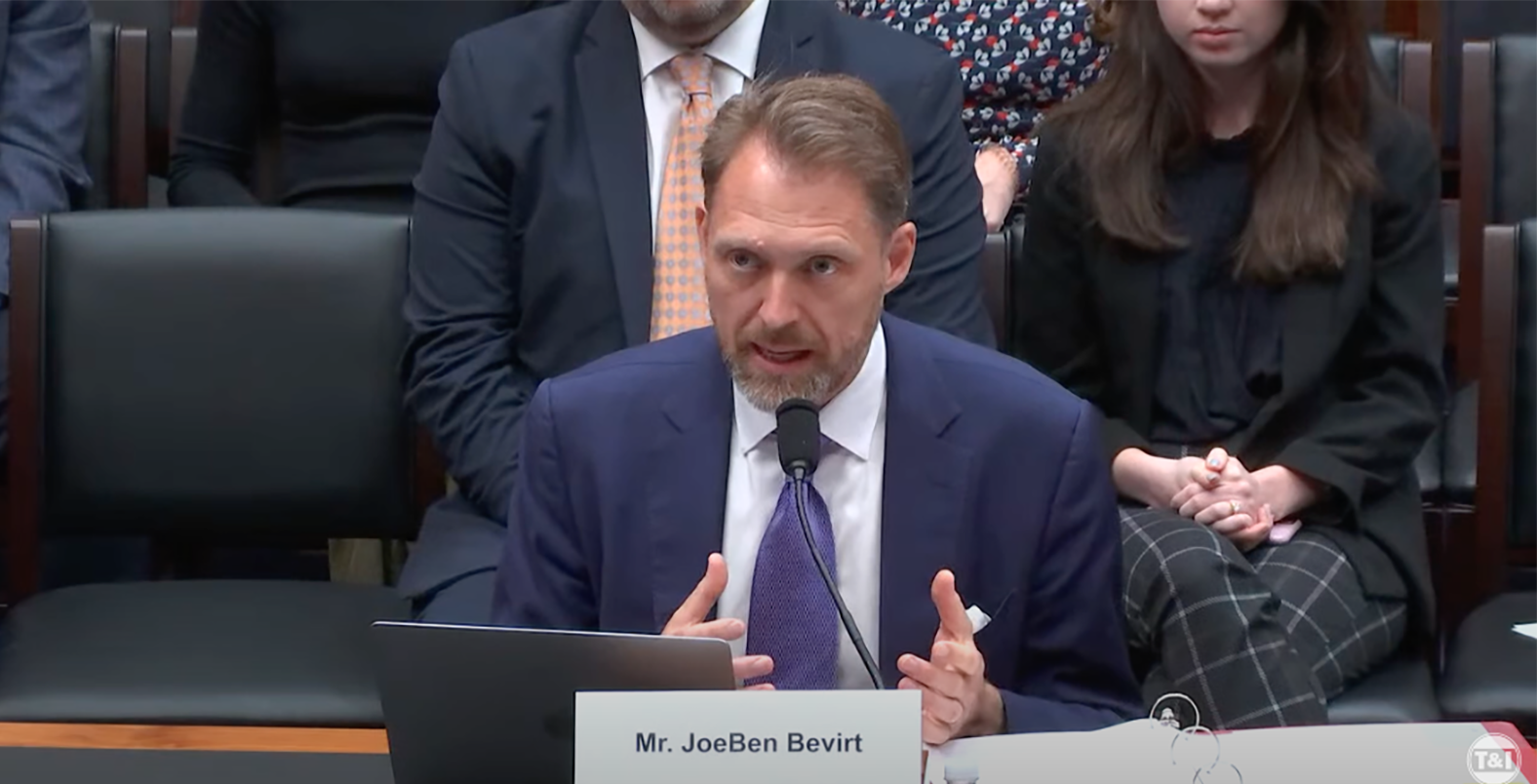Stay Up to Date
Submit your email address to receive the latest industry and Aerospace America news.
Congressional members are asked to hold FAA accountable for advanced air mobility progress
Leaders of three aviation companies cautioned U.S. lawmakers today that the United States is at risk of falling behind China, European countries and other nations in the competition to revolutionize local travel with various kinds of small electric aircraft.
“Foreign regulators in China and Europe are working to form their own regulations for electric aviation. If the FAA fails to maintain its leadership position, other countries will dictate how future aircraft are manufactured and operated, putting American companies at a disadvantage in the global market,” Joby Aviation founder and CEO JoeBen Bevirt told the House Subcommittee on Aviation, according to a livestream of the session from the Rayburn House Office Building.
California-based Joby is one of the U.S. air taxi developers that is furthest along toward earning a type certificate from FAA for its planned S4 electric air taxis. But EHang and AutoFlight, which are based in China, and Germany’s Volocopter and Lilium, are among others pursuing certification. In a recent earnings call for investors, media and analysts, EHang executives said they are 90% through their aircraft type certification for commercial service with the Civil Aviation Administration of China.
Clint Harper, an advanced air mobility consultant, said during testimony that he was “the only person of color” in the hearing room, which he said happens “all too frequently” in policy discussions. He said a lack of diversity and young people in decision-making roles has limited the adaptability of the U.S. system.
Bevirt asked members of the subcommittee to ensure that the FAA Reauthorization Act of 2023, which renews federal commitments to fund the agency, require FAA to provide a “reliable environment” for companies like Joby.
He said FAA could hamper innovation if it suddenly shifted policies in ways that could derail or further delay aircraft development, especially if it did so without giving advance notice that would permit companies to adjust.
Specifically, Bevirt asked Congress to require that FAA honor its commitment to provide, by December 31, 2024, an SFAR, or Special Federal Aviation Regulation, to guide pilot requirements and daily operations of companies that intend to provide air taxi services with electric vertical takeoff and landing aircraft, eVTOLs.
Bevirt also wants Congress to require FAA to “create an interim policy to enable commercial operations” if the 2024 deadline is missed for some reason.
Committee members asked Kyle Clark, founder and CEO of Vermont-based Beta Technologies, to talk about his experience with aviation regulators in other countries. Beta earlier this month received a license from the General Civil Aviation Authority of the United Arab Emirates to conduct cargo test flights there with United Parcel Service.
Clark said UAE authorities took a “forward” looking approach based on physics and an understanding that electric aircraft offer safety advantages over aircraft that carry thousands of liters of explosive fossil fuel.
“The FAA here, as good as they are — and they have an impeccable safety record by all measures — is looking backwards to see how we fit within existing regulations,” Clark said.
He said Beta and UPS received their UAE license “within a matter of months.” In the U.S., Beta has received experimental flight clearances from FAA and from the U.S. Air Force after longer periods of review.
Prompt action like the UAE took is “wonderful,” Clark said, and “we need to do the same thing here in the U.S. and unblock, through waivers or other means, folks like Joby, Bristow and us to deploy our aircraft domestically.”
Christopher Bradshaw, CEO of helicopter operator Bristow Group, said he believes the U.S. is behind other jurisdictions in evaluating and certifying new technologies. The company operates in a dozen nations in the Americas, Europe, Africa and Australia.
“It seems that in other countries, there has been a clear framework approach taken, not as prescriptive, and there’s certainly a commitment in some of these places to be a leader in this industry,” Bradshaw said.
Get the latest news about advanced air mobility delivered to your inbox every two weeks.
About paul brinkmann
Paul covers advanced air mobility, space launches and more for our website and the quarterly magazine. Paul joined us in 2022 and is based near Kennedy Space Center in Florida. He previously covered aerospace for United Press International and the Orlando Sentinel.
Related Posts
Stay Up to Date
Submit your email address to receive the latest industry and Aerospace America news.




